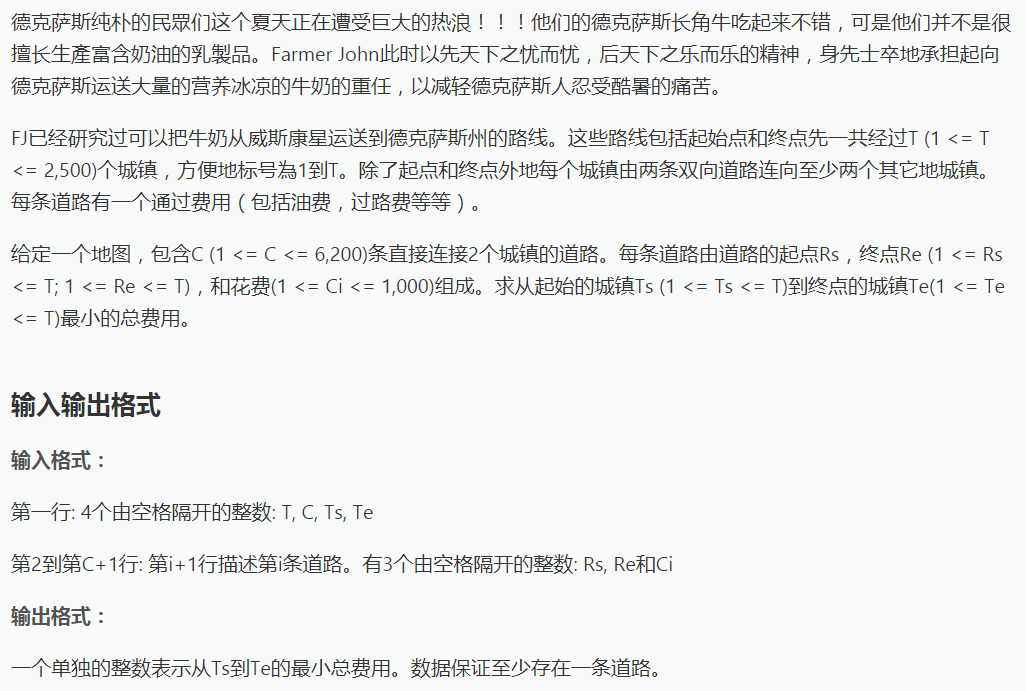
【题解】
最短路。那么直接写dijkstra就好了。

1 #include<cstdio> 2 #include<algorithm> 3 #include<cstring> 4 #define LL long long 5 #define rg register 6 #define N 200010 7 using namespace std; 8 int n,m,s,t,tot,last[N],dis[N],pos[N]; 9 struct edge{ 10 int to,pre,dis; 11 }e[N<<1]; 12 struct heap{ 13 int poi,dis; 14 }h[N<<1]; 15 inline int read(){ 16 int k=0,f=1; char c=getchar(); 17 while(c<'0'||c>'9')c=='-'&&(f=-1),c=getchar(); 18 while('0'<=c&&c<='9')k=k*10+c-'0',c=getchar(); 19 return k*f; 20 } 21 inline void up(int x){ 22 int fa; 23 while((fa=(x>>1))&&h[fa].dis>h[x].dis){ 24 swap(h[fa],h[x]); swap(pos[h[fa].poi],pos[h[x].poi]); 25 x=fa; 26 } 27 } 28 inline void down(int x){ 29 int son; 30 while((son=x<<1)<=tot){ 31 if(son<tot&&h[son].dis>h[son+1].dis) son++; 32 if(h[son].dis<h[x].dis){ 33 swap(h[son],h[x]); swap(pos[h[son].poi],pos[h[x].poi]); 34 x=son; 35 } 36 else return; 37 } 38 } 39 inline void dijkstra(int x){ 40 for(rg int i=1;i<=n;i++) dis[i]=2e9; 41 h[tot=pos[x]=1]=(heap){x,dis[x]=0}; 42 while(tot){ 43 int now=h[1].poi; h[1]=h[tot--]; if(tot) down(1); 44 for(rg int i=last[now],to;i;i=e[i].pre) 45 if(dis[to=e[i].to]>dis[now]+e[i].dis){ 46 dis[to]=dis[now]+e[i].dis; 47 if(!pos[to]) h[pos[to]=++tot]=(heap){to,dis[to]}; 48 else h[pos[to]].dis=dis[to]; 49 up(pos[to]); 50 } 51 pos[now]=0; 52 } 53 } 54 int main(){ 55 n=read(); m=read(); s=read(); t=read(); 56 for(rg int i=1;i<=m;i++){ 57 int u=read(),v=read(),d=read(); 58 e[++tot]=(edge){v,last[u],d}; last[u]=tot; 59 e[++tot]=(edge){u,last[v],d}; last[v]=tot; 60 } 61 dijkstra(s); 62 printf("%d ",dis[t]); 63 return 0; 64 }
